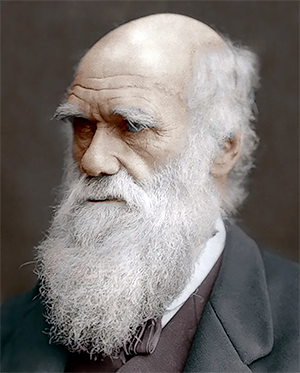Darwinism and Its Dual Legacy: Transforming Science and Challenging Faith
The publication of Charles Darwin’s On the Origin of Species in 1859 marked a turning point in the history of ideas. More than a scientific text, it was a cultural and philosophical landmark that reshaped the way humanity understood life, purpose, and origins. Darwin’s theory of evolution by natural selection not only revolutionized biological science but also posed serious theological challenges, particularly to traditional Judeo-Christian interpretations of creation. The consequences of Darwinism reverberated far beyond the scientific community, leaving a lasting legacy on both scientific inquiry and religious belief.
The Scientific Revolution of Evolutionary Theory
Darwin’s central claim—that all species, including humans, evolved through a process of natural selection—provided a comprehensive and naturalistic explanation for the diversity and complexity of life. Prior to Darwin, the prevailing view in both science and religion held that species were fixed and independently created by divine act. This belief aligned closely with biblical teachings, particularly the Genesis account of creation.
However, the theory of evolution introduced a radically different framework. By proposing that species change over time through random variation and environmental pressures, Darwin eliminated the need for supernatural design in explaining biological order. This shift had profound implications for science. It unified previously disparate fields such as anatomy, paleontology, and biogeography under a common explanatory model and laid the foundation for modern biology.
Over time, Darwin’s ideas were integrated with genetic science, particularly through the 20th-century development of the modern synthesis, which combined natural selection with Mendelian genetics. Evolutionary theory became indispensable not only in understanding the history of life but also in practical fields such as medicine, agriculture, and ecology. It established a new paradigm in which naturalistic explanations were prioritized and scientific knowledge was purportedly based on empirical evidence rather than theological assumptions.
A Challenge to Religious Orthodoxy
While Darwinism advanced science, it simultaneously presented a direct challenge to traditional religious belief, especially within Christianity. The Genesis narrative described a recent, purposeful creation of all life forms, with humanity uniquely made in the image of God. Evolution, by contrast, suggested that humans were the product of the same blind, undirected processes that shaped all other organisms. This not only undermined the literal truth of scripture but also called into question theological doctrines about human uniqueness, divine providence, and original sin.
In the late 19th century, this dissonance led to what many called a “crisis of faith.” Some believers, confronted with Darwin’s ideas and the growing authority of science, abandoned religion altogether. Others attempted to reinterpret scripture allegorically or sought to reconcile religious doctrine with evolutionary theory.
The emergence of theistic evolution—the belief that God used evolution as a tool of creation—represented one such effort at reconciliation. This perspective was adopted by several Protestant theologians and was later formally endorsed by the Catholic Church, most notably in Pope John Paul II’s 1996 statement affirming the compatibility of evolution with Christian faith. These responses indicated a growing willingness among certain religious communities to engage constructively with science.
Cultural Conflict and the Rise of Creationism
Despite these conciliatory efforts, Darwinism remained controversial in many religious circles, particularly among conservative and evangelical Christians. In the United States, the early 20th century saw the rise of creationist movements, which rejected evolution and sought to uphold a literal reading of Genesis. The 1925 Scopes “Monkey” Trial in Tennessee, in which a high school teacher was prosecuted for teaching evolution, symbolized the broader cultural conflict between modern science and traditional religion.
Throughout the 20th and into the 21st century, debates over evolution have continued, often centering around public education. The development of Intelligent Design theory in the late 1990s represented a more philosophically sophisticated critique of Darwinism. Proponents argued that certain features of life are too complex to have arisen through natural processes alone and must therefore be the product of an intelligent cause. However, most in the scientific community continue to support evolution, and legal rulings regarding school instruction (e.g. 2005 case of Kitzmiller v. Dover Area School District), have rejected Intelligent Design as a form of disguised creationism.
Darwinism stands as one of the most influential ideas in modern history, transforming not only the scientific understanding of life but also altering the intellectual and theological landscape. For science, it offered a coherent, evidence-based account of life’s development, fostering new disciplines and discoveries. For religion, it posed deep existential and doctrinal questions, some of which remain unresolved.
While many religious groups have come to terms with evolution, others continue to resist it, seeing it as incompatible with sacred texts and moral order. As such, Darwinism occupies a unique place in the history of ideas: a scientific theory that became a cultural force, bridging, and at times dividing, the worlds of reason and faith.
